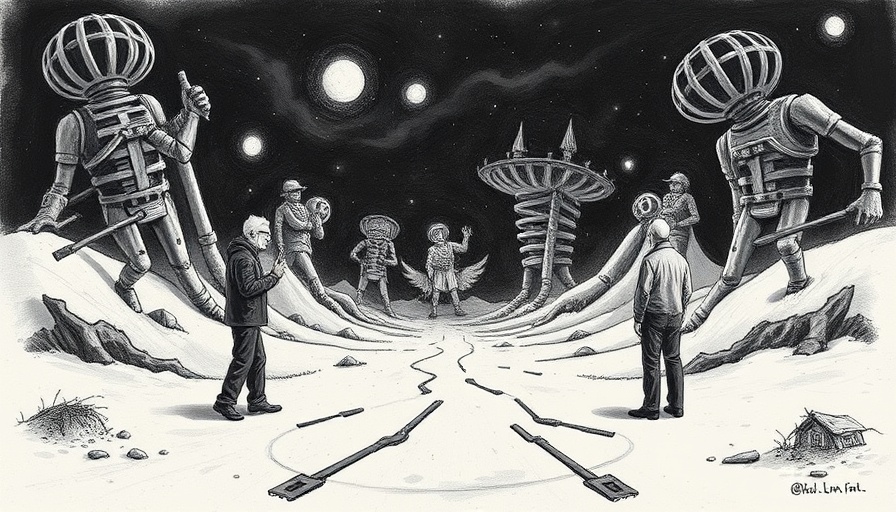
The Transformation of Work in a Tech-Driven World
The integration of artificial intelligence (AI) into the workplace is transforming traditional notions of employment, creating an array of opportunities and challenges. As machines become increasingly capable of performing complex tasks, the question looms: Is this the end of work as we know it?
Understanding AI's Impact on Job Markets
AI technologies are advancing at breakneck speed, leading to significant shifts in economic structures. Fields such as retail, healthcare, and finance are undergoing substantial changes, with AI applications automating routine tasks. For example, AI-powered customer service bots are becoming commonplace, enhancing customer experience and streamlining operations. However, these developments raise concerns about job displacement, particularly for low-skilled workers.
Future Predictions: A World Augmented by AI
Experts predict that the future workspace will not replace human effort but rather evolve to require new, collaborative skills between humans and machines. AI solutions, powered by advancements in machine learning and natural language processing, are expected to create jobs in AI management and maintenance that did not exist a decade ago. For businesses, adopting AI effectively could lead to operational efficiency and innovation, allowing them to remain competitive in a fast-changing environment.
Ethical Considerations in AI Utilization
The rise of AI begs the question of ethics. How do we ensure that AI development aligns with human values and rights? The push for explainable AI (XAI) signifies a growing awareness of accountability in AI applications. Organizations must navigate the complexities associated with decision-making algorithms and ensure transparency to build public trust.
Embracing Change: Skill Development and Resilience
For individuals, adapting to this new paradigm necessitates a focus on lifelong learning and continuous skill development. Students and professionals alike must enhance their tech literacy and specialize in areas where human insight is indispensable. By fostering a culture of adaptability, society will be better positioned to thrive amidst technological upheaval.
 Add Row
Add Row  Add
Add 




Write A Comment